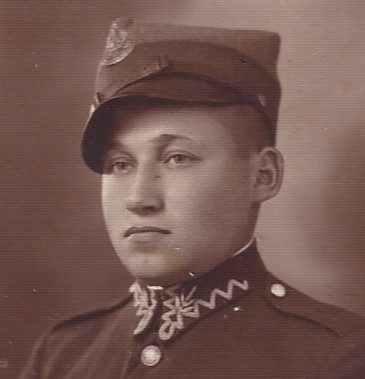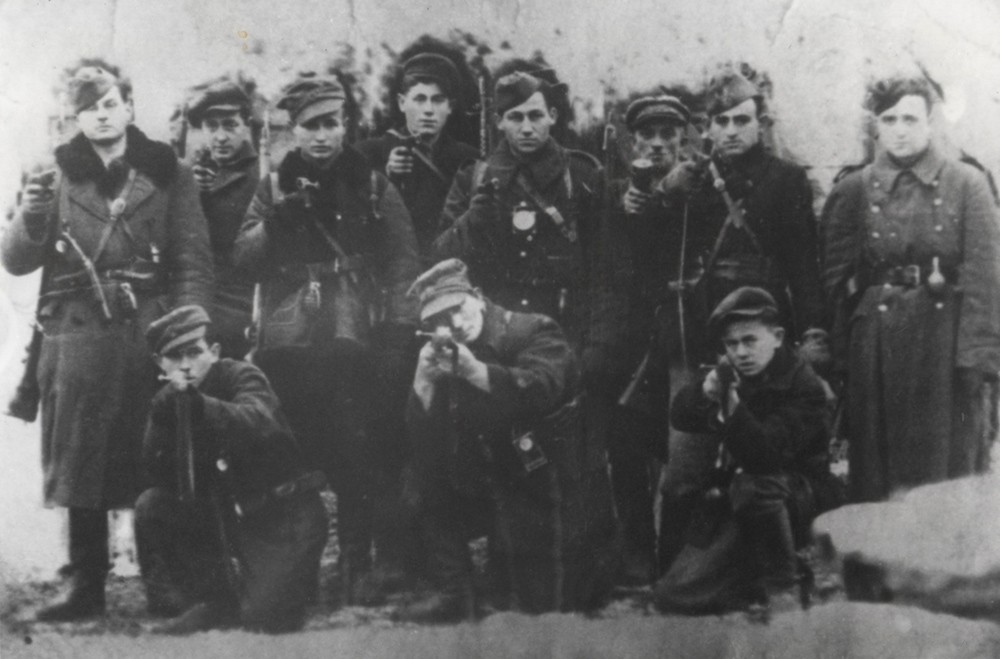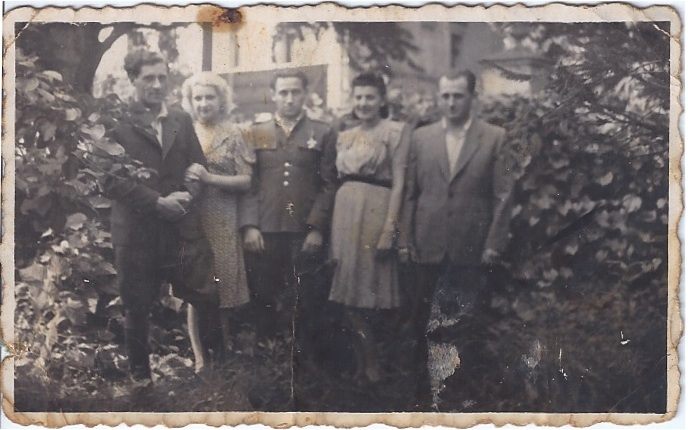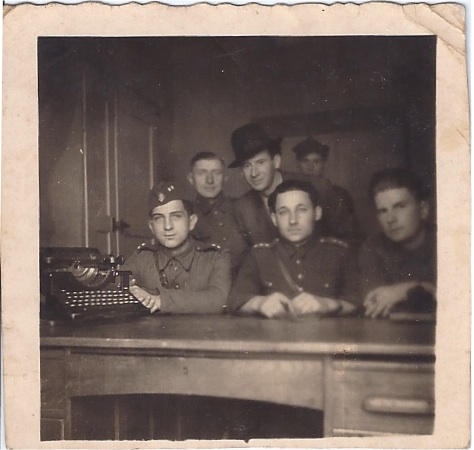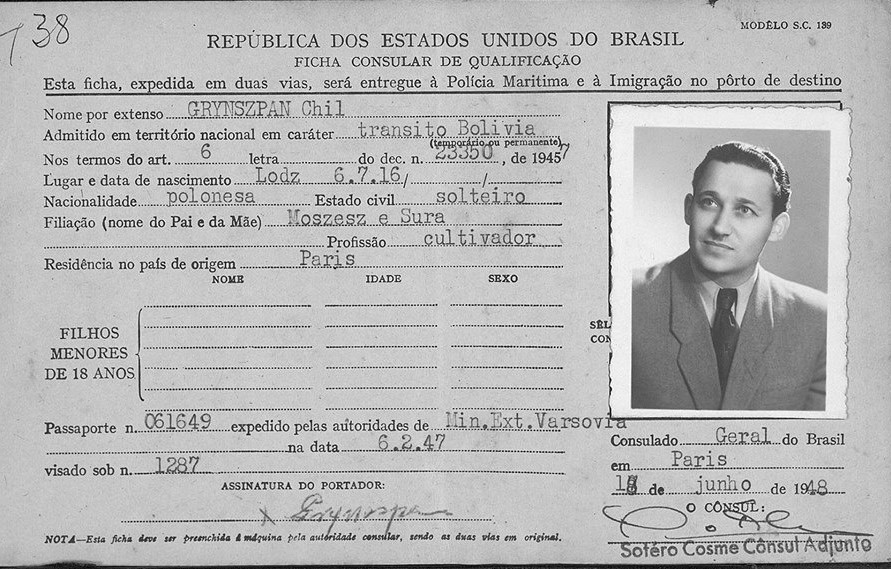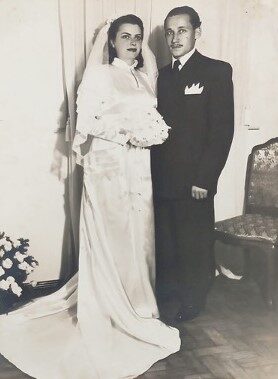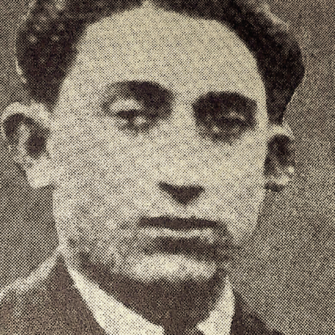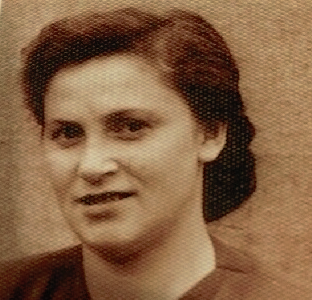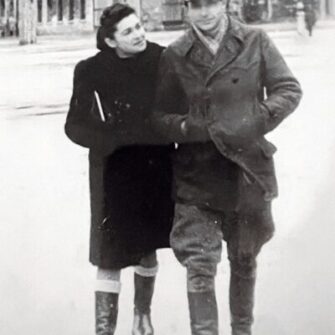Yechiel (Chil) Grynszpan was born on July 6, 1916, in Sosnowica, Poland, to Sura Bajla and Moszko Grynszpan. He grew up with three sisters, Heny, Mindel, and Hinda, along with two brothers, Ajzyk and Abraham. Chil worked alongside his father as a horse and cattle trader and was familiar with the land around Parczew, along with the Polish farmers living there. This knowledge would later prove essential for his survival.
Chil’s older brother and sister, Ajzyk and Heny, immigrated to Brazil before the war, while the remainder of the family stayed in Poland. When the war broke out in 1939, Chil was serving in the Polish Army’s artillery. Chil was captured by German troops and became a prisoner of war, but he escaped with another prisoner. He made his way homeward and remained with his family until the Nazis began liquidating the area. Chil’s parents had died by this time, and his older siblings were in Brazil. Chil fled into the Parczew Forest with his brother Abraham and their friend, Zev Litwak, where they joined the Russian partisans. His sister, Mindel, who was married and had three children, and his seventeen-year-old sister, Hinda, did not want to leave. The Nazis later murdered them.
Chil’s knowledge of the forest and his military training enabled him to leave the Russian partisans and start a partisan group of his own in the middle of the Parczew Forest. He recruited and transformed the local tradesmen, who were untrained in warfare, into an armed unit. The local Polish farmers provided Chil’s unit with weapons they collected after the retreat of the Polish Army. Little by little, his arsenal of weapons and fighters grew, expanding even more when they joined forces with the Armia Ludowa (People’s Army). This connection made it possible for Chil’s group to receive more modern weapons from the Russians.
Chil’s group became one of the most notable and effective Jewish partisan units in Eastern Europe, numbering around 400 fighters at its height, along with hundreds of civilians in the separate family camp. The group’s members came from the northeastern area of Lublin, many of whom had escaped deportations to Sobibor in 1942. Many also came from Tabor and Altana, two family groups in the Parczew forests, along with Jews who had escaped the Wlodawa Ghetto.
As commander of the unit, Chil trained and led his fighters in sabotaging German communication and protecting the family camp. They placed bombs on German railroads, blew up troop trains, cut telephone lines, attacked police and government posts, and seized German supply trucks. Not only did they have the Nazis to fight, but they also faced armed confrontations with another enemy – the Armia Krajowa (Polish Home Army) – who were not friendly toward Jews.
After the war, Chil helped Jewish children, who had been hidden with Polish families, reunite with their own families. He became commander of the local militia in Hrubieszow, where he went by the alias Stanislaw Dabrowski. He was given a Polish name so he would not be recognized as a Jew and, therefore, not be harassed. However, because the locals knew he was a Jew due to his actions as a partisan, he experienced violent acts of antisemitism, once being sent a bomb in the mail. There was even a prize for his head in the region. In 1947, Chil asked to be transferred elsewhere. After a time, he was moved to Lublin. From there, he left Poland and traveled to France, where he waited six months to procure a visa for Bolivia.
Chil arrived in Rio de Janeiro, Brazil, in the middle of July 1948 on a ship named the Campana. He only had a transit visa to Brazil but decided to stay and obtain citizenship. In Rio de Janeiro, Chil was reunited with his brother, Ajzyk. Chil became a peddler, and a few years later, Chil and Ajzyk opened a furniture store together. After Ajzyk later moved to another city, Chil became the store’s sole owner, working there until his retirement. Chil met his wife, Augusta, a nurse in a Jewish hospital in Brazil. Augusta was born in Brazil in 1930, the daughter of a Romanian Jewish couple who immigrated there in the 1920s. Chil and Augusta were married in the early 1950s and had three children: Celia, Mario, and Walter. They resided in a middle-class neighborhood called Meier, home to a sizeable Jewish population. In the mid-1960s, the family moved to Copacabana as their economic status improved. Chil and Augusta had six grandchildren and now have one great-grandchild.
Chil did not talk very much about his Holocaust experiences even though, as the commander of the Grynszpan Brigade, his unit saved countless Jewish lives and was among the most notable Jewish partisan groups during the war. Chil passed away in February 1999 from Parkinson’s disease. His wife, Augusta, passed away in 2020 at 90.

